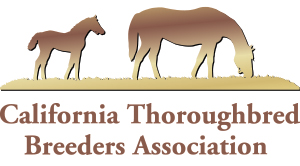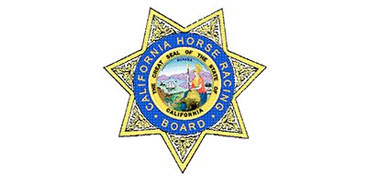From CHRB
SACRAMENTO, Calif. (May 17, 2024) — The California Horse Racing Board conducted a meeting on Thursday, May 16, 2024, at Cal Expo in Sacramento. Chairman Gregory Ferraro chaired the meeting, joined by Vice Chair Oscar Gonzales and Commissioners Dennis Alfieri, Brenda Washington Davis, and Thomas Hudnut.
The audio of this entire Board meeting is available on the CHRB Website (www.chrb.ca.gov) under the Webcastlink, accessed through the Media Room tab. In brief:
- The Board heard extensive testimony on the subject of funding for its own budget in fiscal-year 2024-25. The underlying issues still have not been resolved. The funding mechanism must be in place by July 1, essentially at the June 20 meeting of the Board.
California racetracks and horsemen always have paid for CHRB operations. In 2009, the California Legislature and Governor approved a statute restructuring license fees and the method of CHRB funding. That 2009 statute specifically requires all racetracks to pay the costs for stewards, official veterinarians, and equine drug testing at their own race meets. The Southern California thoroughbred racetracks have voluntarily shouldered some of that burden since 2009, meaning the northern fairs and the harness and quarter-horse meets have not paid the full amount for stewards, official veterinarians, and equine drug testing, which collectively are being described as direct regulatory costs. But now Santa Anita and Del Mar have stated they no longer will shoulder that extra burden voluntarily. CHRB legal counsels and executives agree that without such a voluntary agreement, the statute dictates that all race meets must pay their own way on direct costs. Depending on the meet, the additional costs could range from several hundred thousand to more than $1 million each year. Being required to pay for their own direct regulatory costs could make it difficult if not impossible to operate a profitable race meet for one or more associations. Another issue is indirect costs, such as the salaries of CHRB investigators and licensing personnel at the meets, as well as CHRB personnel working at headquarters, though that issue seems not as contentious.
All of the involved stakeholders have been meeting and negotiating these matters with input from CHRB Executive Director Scott Chaney. However, the major parties remain far apart. CHRB commissioners and staff will continue meeting with those involved in an effort to broker a consensus, but Chaney believes chances for a voluntary agreement are slim.
- During public comment, a number of union workers at Golden Gate Fields expressed their opinions that management is not doing enough to ease the transition of workers after the track permanently closes next month.
In his report to the Board, Chaney also described efforts to manage the transition from Golden Gate Fields to Pleasanton:
“For about the last six weeks, a group of NorCal stakeholders and advocacy groups has been meeting weekly to discuss the transition from Golden Gate Fields to Pleasanton as the hub for racing,” began Chaney. “This effort has been spearheaded by Vice Chairman Gonzales along with assistance from Deputy Executive Director Cythina Alameda. It includes management from CARF and the Alameda County Fair, as well as representatives from the CTT (California Thoroughbred Trainers), CTHF (California Thoroughbred Horsemen’s Foundation), Winners Foundation, Race Track Chaplaincy, Jockeys Guild, and Northern California breeders and racing interests. CHRB specifically engaged Oscar De La Torre to provide an assessment of stable worker needs for the transition. Mr. De La Torre in collaboration with other advocacy groups held a town hall recently at Golden Gate Fields attended by over 60 people to provide information on the transition of existing services and support, as well as collect information on additional needs to be addressed. Some of the most sensitive needs include transitioning the housing and educational services for approximately 14 families that have lived at Golden Gate Fields. The group is focused on identifying the total population of individuals and families, establishing lines of communication, providing for a continuation of existing services, and expanding access to additional resources wherever possible. The BrooksFoundation has been generously providing support in the critical area of housing, but the greatest area of financial need continues to be the cost of travel trailers for on-site housing. I really appreciate everyone’s efforts in this area and applaud your work.”
- The Board approved the license application for the Alameda County Fair to run a race meet in Pleasanton that will operate from June 14 through July 7.
- The Board approved the license application for the Los Angeles County Fair to run a daytime race meet at Los Alamitos Race Course that will operate from June 22 through July 7.
- The Board approved the license application for AmWest Entertainment, LLC, to conduct Advance Deposit Wagering.
- The Board approved an amendment to the license for Game Play Network to conduct Advance Deposit Wagering.
- The Board approved an amendment to the license for Churchill Downs Technology Initiatives to conduct Advance Deposit Wagering.


